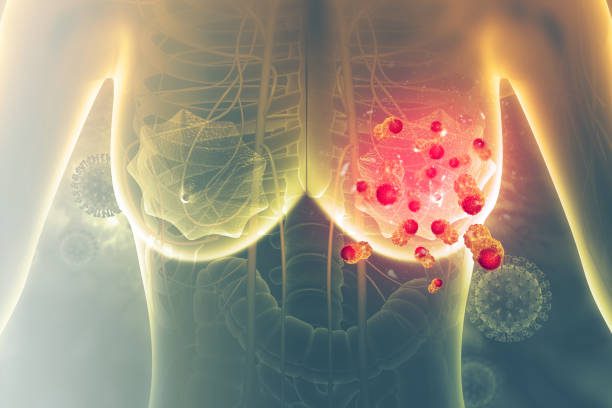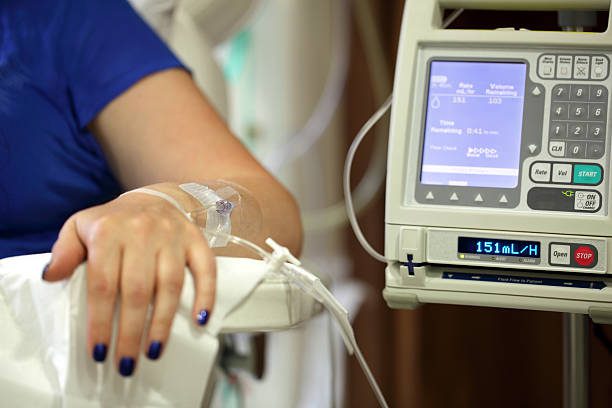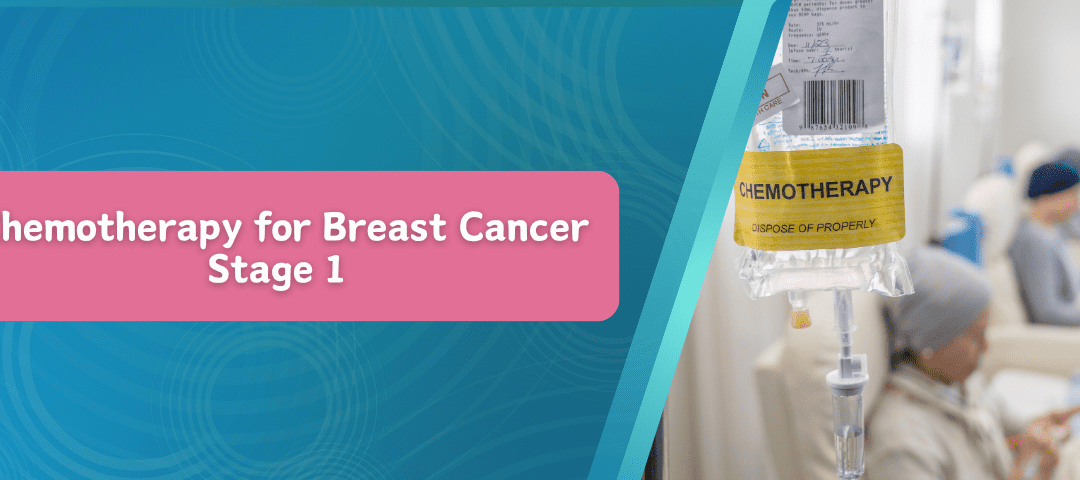Stage 1 breast cancer is an initial stage of the disease condition, where the cancer is confined to the breast and does not spread to the lymph nodes or has minimal spread to the nodes. Chemotherapy in Stage 1 breast cancer can be recommended to avert recurrence, even if the tumor is small. Use of chemotherapy for the initial stage of disease is meant to destroy any remaining cancer cells that could result in cancer recurrence. Use of chemotherapy in stage 1 breast cancer depends on a number of factors and is offered to a few select cases based on those factors. Let’s read more about it further.
Dr. Garvit Chitkara, a leading breast cancer surgeon in Mumbai, explains:
“Chemotherapy for Stage 1 breast cancer plays a vital role in lowering the risk of recurrence, providing a preventive measure even when the tumor is small and confined to the breast. He adds that the good part is that in a certain type of breast cancer, chemotherapy can be completely avoided in stage 1 without a compromise on the oncological safet.y”
Let’s explore the key aspects of chemotherapy for Stage 1 breast cancer, including its purpose, when it’s recommended, common drug regimens, and how to manage side effects effectively.
Wondering if chemotherapy is right for your Stage 1 breast cancer? Consult with a Breast Cancer Surgeon in Mumbai to explore your treatment options and make an informed decision.
Understanding Stage 1 Breast Cancer

Stage 1 breast cancer refers to an early stage of the disease where the tumor is relatively small and has not spread beyond the breast. It is typically divided into two categories:
“Stage 1 breast cancer offers patients the most favorable prognosis when detected early,” explains Dr. Garvit Chitkara. “The confined nature of the tumor makes treatment more straightforward and effective.”
Stage 1 divides into two subcategories:
| Stage 1A | Stage 1B |
| Tumor ≤ 2cm, no lymph node involvement | Small clusters of cancer cells (0.2-2mm) in lymph nodes |
| Most common Stage 1 diagnosis | May have a small tumor or no tumor in the breast |
The limited spread at this stage means treatment options remain less aggressive than later stages. Most patients require surgery and radiation therapy as primary treatments.
When Chemotherapy Is Recommended
Chemotherapy for Stage 1 breast cancer may be recommended based on several factors:
- Tumor Size and Grade: If the tumor is large or of high grade, then chemotherapy may decrease the chances of recurrence.
- Lymph Node Involvement: If the cancer has spread to the nearby lymph nodes then chemotherapy is often used to counter the risk of spreading to other parts of the body.
- Hormone Receptor and HER2 Status: Chemotherapy may be recommended for HER2-positive tumors or those with negative hormone receptors since they are associated with more aggressive disease.
Dr. Garvit Chitkara explains:
“Chemotherapy is often considered in cases where there are factors that could increase the likelihood of recurrence, even in Stage 1. It is a critical part of a tailored treatment plan.”
Purpose of Chemotherapy in Early-Stage Disease
Chemotherapy for Stage 1 breast cancer is used primarily for the following reasons:
- Reducing the Risk of Recurrence: The main aim of chemotherapy is to kill any hidden cancer cells left behind after surgery and reduce the likelihood of the cancer returning.
- Eliminating Microscopic Cancer: Though the tumor is tiny, chemotherapy can kill microscopic cancer cells that cannot be detected through imaging.

- Enhancing Long-Term Survival Rates: Studies have established that chemotherapy improves long-term survival rates by limiting the growth of cancer outside the breast.
Dr. Garvit Chitkara states:
“Chemotherapy in early-stage breast cancer in the deserving cases acts as an insurance policy, providing extra protection against the risk of recurrence, which is crucial for long-term health.”
Are there scientific ways of finding out if the patient requires chemo in early breast cancer?
Dr. Garvit Chitkara says that there are genomic risk profiling methods and certain online databases that help make informed decisions about the overall benefit of chemotherapy in certain cases. However, these tests are currently meant for hormone-positive cancers only. Research is ongoing for other subtypes.
Some examples of these tests are Oncotype DX, MammaPrint, ProSigna, and CanAssist. Which one is best for your case can be discussed with the breast cancer oncologist.
Common Drug Regimens and Duration
Stage 1 breast cancer chemotherapy typically consists of a series of drugs that act on cancer cells via various mechanisms. The most common regimens are:
- AC (Adriamycin and Cytoxan): It is most commonly used for first-stage breast cancer. It is then followed by a Taxol or Taxotere (paclitaxel) regimen to prevent recurrence.
- TC (Docetaxel and Cyclophosphamide): Another common pair that may be used to treat Stage 1 breast cancer, particularly for patients with rapidly growing tumors.
- HER2-Positive Regimens: In HER2-positive tumors, chemotherapy may be added to trastuzumab (Herceptin), a targeted drug that inhibits the HER2 protein.
Chemotherapy is typically for 3-6 months, with two or three weekly administrations. Duration and agents vary depending on patient and tumor factors.
Dr. Garvit Chitkara explains:
“The treatment plan and duration are tailored to the individual, ensuring that chemotherapy is effective without unnecessary side effects.”
Not sure which chemotherapy regimen is best for you? Schedule a consultation with a Breast Surgical Oncologist in Mumbai to discuss the most effective treatment tailored to your cancer’s characteristics.
Managing Side Effects
Chemotherapy in stage 1 breast cancer can cause side effects which have to be actively managed. The most common effects are nausea, tiredness, hair loss, and changes in appetite.
- Nausea and Vomiting To manage nausea and vomiting, prescribed medication for nausea, small, frequent feedings, no strong scents or spicy food, clear fluids for fluid intake.
findings and explore your next steps for early detection and care.

“Effective side effect management is crucial for maintaining quality of life during treatment,” notes Dr. Chitkara. “Patients should communicate openly about their symptoms so we can adjust their care plan accordingly.”
- Fatigue Management Patients should prioritize rest while maintaining light physical activity when possible. Short walks or gentle stretching can help maintain energy levels without overexertion.
- Hair Loss Preparation Some patients develop thinning or hair loss as early as 2-3 weeks after starting treatment. Buying wigs, scarves, or hats in advance might prove to be helpful.
- Infection Prevention Chemotherapy may weaken the immune system temporarily. Hand washing regularly, avoiding close contact with others, and immediately reporting fever or any other unusual symptom are advised for patients.
Struggling with chemotherapy side effects? Speak to a Breast Cancer Surgeon in Mumbai to get the right support for managing symptoms and enhancing your recovery.
Managing Side Effects
Follow-up care remains crucial after completing stage 1 breast cancer treatment. Regular monitoring helps detect any potential recurrence early and manage long-term treatment effects.
Regular physical examination helps to assess global health and monitoring for any signs of recurrence, with interval imaging procedures such as mammograms or ultrasound suggested to monitor for alterations. Supportive care in the aspect of emotional as well as psychological support is also essential to allow patients to cope with the effect of chemotherapy.
Dr. Garvit Chitkara explains:
“Follow-up care is a vital part of the process. Regular monitoring ensures that we can catch any potential issues early and continue to provide the best possible care.”
Conclusion
Chemotherapy for Stage 1 breast cancer is a critical part of the treatment process in some cases, as it destroys any remaining cancer cells and reduces the risk of recurrence. Though it can come with side effects, the benefit of chemotherapy in preventing cancer recurrence far outweighs such short-term challenges. Depending on the age of the patient, subtype of cancer, and stage of the disease, chemotherapy can be safely avoided in certain patients without compromising oncological safety.
FAQs
Q1. When is chemotherapy recommended for Stage 1 breast cancer?
Chemotherapy may be recommended if the tumor is HER2-positive, hormone receptor-negative, or if there is a recurrence fear.
Q2. What are the common side effects of chemotherapy?
Side effects include fatigue, hair loss, nausea, vomiting, and an increased risk. Most side effects are temporary and can be managed with medication.
Q3. How long does chemotherapy for Stage 1 breast cancer last?
Chemotherapy typically takes 3-6 months, with the treatments occurring every two to three weeks.
Q4. Can chemotherapy for Stage 1 breast cancer cure the disease?
Chemotherapy helps reduce the risk of recurrence and can significantly improve survival rates, but it is part of a broader treatment plan that includes surgery and sometimes radiation.

